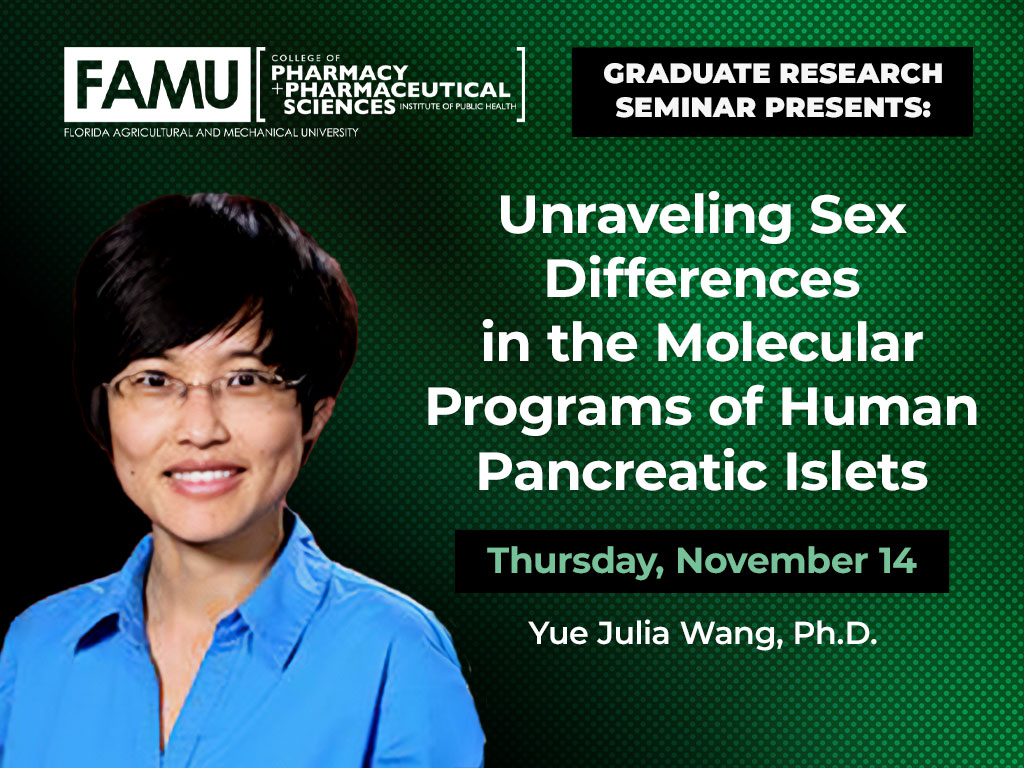GRADUATE RESEARCH SEMINAR: Unraveling Sex Differences in the Molecular Programs of Human Pancreatic Islets

Yue Julia Wang, Ph.D.
Assistant Professor, Biomedical Sciences
Florida State University | College of Medicine
Thursday, November 14, 2024
11:00 a.m. to 12:00 p.m.
Phase II/East Wing, Room LL2-205
Talk summary: Epidemiology studies demonstrate that women are at a significantly lower risk of developing type 2 diabetes (T2D) compared to men. However, the molecular basis of this risk difference is not well understood. In this talk, we will present evidence of sex differences in islet biology and discuss how sex differences contribute to different diabetes susceptibilities between females and males.
Dr. Yue "Julia" Wang obtained a B.S. at Tsinghua University in China and received her Ph.D. in Human Genetics at Johns Hopkins University. Julia completed her post-doctoral training in Dr. Klaus Kaestner’s laboratory at the University of Pennsylvania.
She is highly committed to training the next generation of molecular biologists and equipping them with essential quantitative analytical skills to handle big data as well as wet bench skills. Her lab aims to discover novel targets that lead to the effective treatment of diabetes, focusing on the molecular programs of diabetes, using highly innovative single-cell multiomics as well as functional genomics approaches to elucidate pathways involved in endocrine cellular plasticity and diabetes pathogenesis. They are also developing bioinformatics tools to deeply analyze single-cell RNA-seq data to derive further biological insights.
FAMU CoPPS, IPH Professor Eun Sook Lee, Ph.D. noted of Dr. Wang’s upcoming seminar: “Collaborating with Dr. Wang may be of mutual benefit for both FAMU and FSU and the communities we serve.”
For more on Dr. Wang, please visit: sites.google.com/view/juliawanglab/home
This graduate seminar should prove beneficial with an opportunity for Dr. Wang to simultaneously further and present her research and invite others to engage in meaningful dialogue for additional investigative endeavors and implications.



